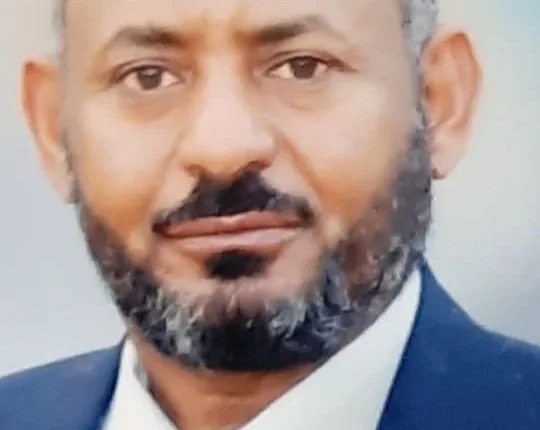The Change We Want

By: Al-Rafee’ Bashir Al-Shafi’
Through the contributions in our call for true and positive change and through many messages we have presented via the “Positive Opposition” initiative, I would like to contribute here by responding to a question posed by Dr Barakat Musa Al-Hawati, a man deeply concerned about his country (Sudan), on his Facebook page today.
The critical question that Dr. Barakat raised is:
“Do political forces, in a moment of honesty with themselves and for history, record the mistakes of their internal and external strategies and tactics towards the Sudan and its citizens?”
In response, I say:
What you asked about cannot happen with the stroke of a pen or overnight; it requires us to change the language of the gun to the language of reason and to bring about real change in concepts, conscience, and the mentality of managing the country in a new approach, with new visions for the post-war era. We need to redefine the meaning of the homeland and how to manage it in a way that is different from what existed before the war. This approach includes gathering and analyzing the causes of the political conflict that began in the 1980s, creating a middle ground for political solutions based on the foundation of the homeland and citizenship.
To achieve this, we need to implement a major national effort that reshapes the country, its citizens’ mentality, party management concepts, and the management of the state itself. Most importantly, we need someone to provide us with a roadmap for the post-war era through a system of visions for real national change.
We need to reshape the Sudanese mentality and the concepts of the political elite—both civilian and military—on how to manage the country and dismantle the factionalism and ego surrounding it. We need to rescue the country from this crisis genuinely, but not by creating the narrative of two parties in conflict or by constantly creating an imagined enemy.
We need real change to restructure the state—administratively, organizationally, constitutionally, and legally—and we need a sincere and effective national reconciliation that is binding on all parties.
Before all this, we need a religious, political, and ethical jurisprudence that will enable us to begin and implement the change, free from ideological and regional conflicts. We need to review our positions on forms of governance and their nature, as well as localize, Sudanize, and democratize the governance of Sudan in a way that reflects its culture, social structure, and the nature of its people. This democracy must consider the tenets of its religion, traditions, and ethnic diversity while using its historical context to address the present and future political, social, and economic issues.
We need to create a middle ground for political conflicts and frame the concept of nationalism, removing regionalism, ego, and political ignorance from it. We must also shape the country’s internal and external relations based on a national constitution that guides Sudan’s relations with the world positively, encouraging mutually beneficial partnerships and paving the way for positive strategic collaborations focused on economic and human relationships according to the national identity.
We need to close the gaps in the ongoing dysfunction and seriously address the underlying issues related to identity, regionalism, and blind dependency. We need to renew and change the party concepts regarding the meaning of the homeland and its management, shifting from a legacy of conflict to a contribution of leadership and management for the country rather than fighting over its management based on a supposed and imposed heritage.
We need to define and establish the meaning of national security in all its forms (military, security, economic, and civilian) and create a framework for military and civilian roles to complement each other rather than conflict, as they are interconnected roles. If separated, the country will fall apart as it is now.
We need a deep and serious understanding of political practice to eliminate foreign manipulation and restore the country’s decision-making power, sovereignty, and will. We need serious management that embraces all of this and works in a cohesive, integrated, and honest team, free from ego and partisanship and committed only to God and the nation.
We need to create genuine change in the structure of institutions, reviewing their effectiveness and integration and activating that integration. We must also foster responsibility, accountability, and transparency, which are essential for managing the institutions that form the backbone of the state and its structure.
Before answering your question, we must remember that the people build the nation with their concepts and national spirit. They define the systems of coexistence, cooperation, and giving that form the nation. The harmony between these concepts forms the strength of a country.
Other nations instil the values of nationalism in their people from an early age, incorporating them into their educational, social, and family frameworks. The educated and cultured elites of these nations guide the vision and direction of the country. We have witnessed how these nations build and manage their countries in a way that attracts everyone, where everyone finds a sense of belonging and makes real contributions. But in Sudan, we have fragmented concepts, and each party has its own vision of the state, driven by excessive partisan egoism. This has led to political, social, and ideological division, all due to the absence of a value system rooted in ethical, political, and administrative understanding. This gap continues to widen because of the deficiencies we’ve outlined.
Shortlink: https://sudanhorizon.com/?p=3044

